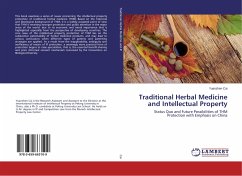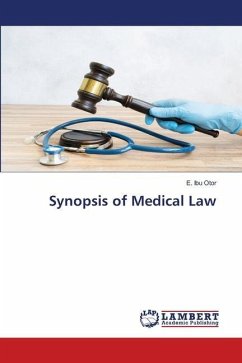This book examines a series of issues concerning the intellectual property protection of traditional herbal medicine (THM). Based on the historical and ideological background of THM, it is a widely accepted point of view that THM is receiving stronger protection and public attention in the major areas of the world, due to its economic and moral importance that is highlighted especially from the perspective of developing countries. The core issue of the intellectual property protection of THM lies on the substantive patentability of herbal medicinal products, and may lead to various conclusions when different types of patents and patenting strategies are applied. As a result from the inapplicability, ambiguity and inefficiency of means of IP protection, a seemingly more practical form of protection begins to raise speculation, that is, the essential benefit-sharing and prior informed consent mechanism conceived by the Convention on Biological Diversity.








